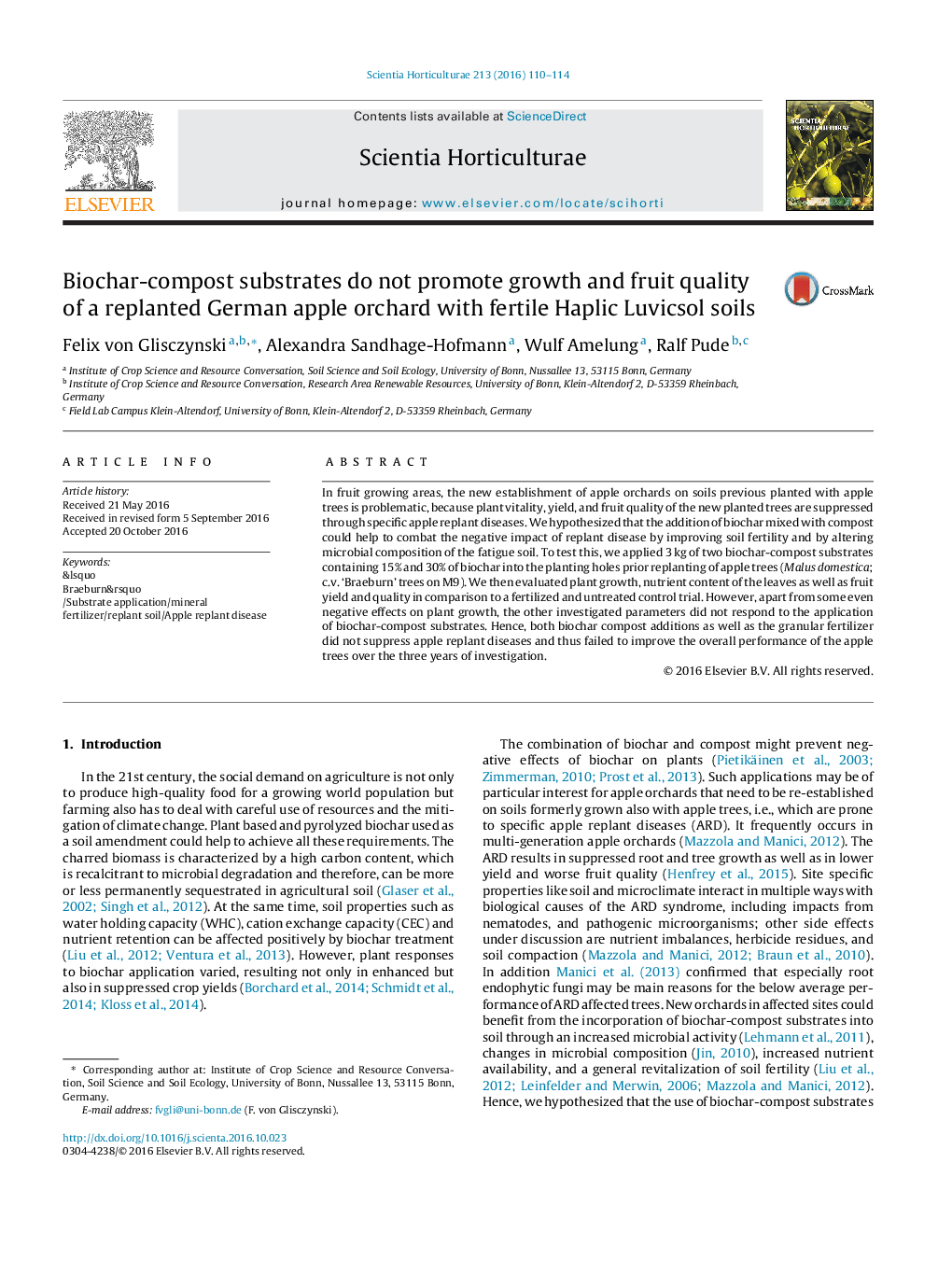| Article ID | Journal | Published Year | Pages | File Type |
|---|---|---|---|---|
| 4565890 | Scientia Horticulturae | 2016 | 5 Pages |
•The addition of biochar-compost mixtures to replant soil failed to improve apple tree growth.•Biochar-compost treatment of the planting hole did not increase nutrient supply of the leaves under replant conditions.•Fertility and fruit quality were not affected by the application of biochar-compost mixtures.
In fruit growing areas, the new establishment of apple orchards on soils previous planted with apple trees is problematic, because plant vitality, yield, and fruit quality of the new planted trees are suppressed through specific apple replant diseases. We hypothesized that the addition of biochar mixed with compost could help to combat the negative impact of replant disease by improving soil fertility and by altering microbial composition of the fatigue soil. To test this, we applied 3 kg of two biochar-compost substrates containing 15% and 30% of biochar into the planting holes prior replanting of apple trees (Malus domestica; c.v. ‘Braeburn’ trees on M9). We then evaluated plant growth, nutrient content of the leaves as well as fruit yield and quality in comparison to a fertilized and untreated control trial. However, apart from some even negative effects on plant growth, the other investigated parameters did not respond to the application of biochar-compost substrates. Hence, both biochar compost additions as well as the granular fertilizer did not suppress apple replant diseases and thus failed to improve the overall performance of the apple trees over the three years of investigation.
